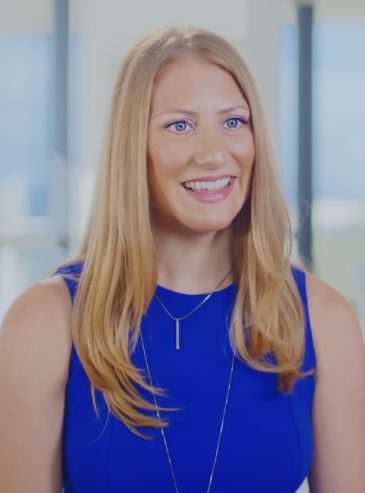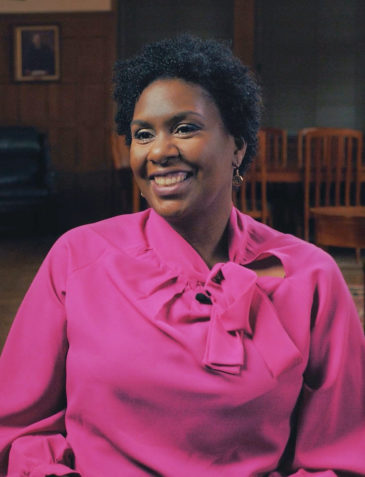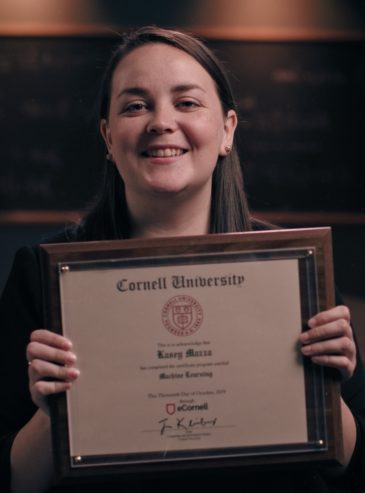STAND APART

Whether you’re an educator, coach, or wellness professional, this certificate program provides proven counseling techniques to blend within your chosen helping profession. You can significantly enhance your effectiveness, along with the success of the groups you serve, by using specific communication tactics that encourage open and productive partnerships. Ultimately, you will master counseling skills to drive behavior change.
- Dec 17, 2025
- Feb 11, 2026
- Apr 8, 2026
- Jun 3, 2026
- Jul 29, 2026
- Sep 23, 2026
- Nov 18, 2026
In this course, you will practice techniques to elicit information from clients, uncover their deeper needs and in turn help them set better goals. You will conduct a session with a colleague, or friend to practice your client-directed counseling skills in a real-life setting, gather feedback from your partner, and then reflect on what you did well and what you would change. You will describe how the use (or lack) of continuing responses in a conversation you've had in the past has affected trust within that conversation, and you will make a plan to better integrate continuing responses into future conversations. You will observe and evaluate another counselor's use of client-centered techniques to elicit information. While identifying and overcoming challenges in implementing client-centered counseling techniques, you will create an action plan to help clients set goals that align with their true needs. At the end of this course, you will be poised to apply new techniques to better identify the client's “need behind the need.”
You are required to have completed the following course or have equivalent experience before taking this course:
- Understanding the Person
- Dec 31, 2025
- Feb 25, 2026
- Apr 22, 2026
- Jun 17, 2026
- Aug 12, 2026
- Oct 7, 2026
- Dec 2, 2026
In this course, you will use a variety of tools and techniques to help clients set achievable goals and stay motivated. You will identify the top techniques and tips that are specifically applicable to your style of counseling or that can best help you grow as a communicator in your field, and use them to compile a resource for future practice. You will practice applying empathy in order to find out what truly matters to your clients and apply that valuable information to goal setting. You will conduct a motivational interviewing session with a colleague, or friend to practice your skills in a real-life setting, reflect on what you did well and what you would change, and receive helpful feedback from the course facilitator. Finally, you will use five best practices to create your own script for a conversation in which you help a client set a realistic and actionable goal.
You are required to have completed the following courses or have equivalent experience before taking this course:
- Understanding the Person
- Understanding the Deeper Need
- Jan 14, 2026
- Mar 11, 2026
- May 6, 2026
- Jul 1, 2026
- Aug 26, 2026
- Oct 21, 2026
- Dec 16, 2026
Client-directed counseling is effective for one-on-one interactions, working with groups, and working with organizations. This course allows you to further develop your counseling skills, explore wellness for groups and organizations, and solidify a plan for your future. You will create a plan to expand your wellness counseling skills and integrate them with your current area of expertise. You will then expand your counseling skills to support group facilitation. You will practice these skills by engaging with a colleague, or friend outside of the course. Finally, you will create a wellness vision and plan how you will communicate your vision to organizations and employees. By the end of this course, you will be prepared to use your counseling skills to work within organizations focused on improving the health and wellness of their employees.
You are required to have completed the following courses or have equivalent experience before taking this course:
- Understanding the Person
- Understanding the Deeper Need
- Eliciting New Behaviors
- Dec 3, 2025
- Jan 28, 2026
- Mar 25, 2026
- May 20, 2026
- Jul 15, 2026
- Sep 9, 2026
- Nov 4, 2026

eCornell was truly one of the best investments I made in my entire career and it’s what brought me to where I am now.
eCornell was truly one of the best investments I made in my entire career and it’s what brought me to where I am now.

What I wanted was something that had an exceptional caliber of professionals and professors, and eCornell actually gave me that.
What I wanted was something that had an exceptional caliber of professionals and professors, and eCornell actually gave me that.
- View slide #1
- View slide #2
- View slide #3
- View slide #4
- View slide #5
top Minds
100% Online
that fit your life and career.
career



